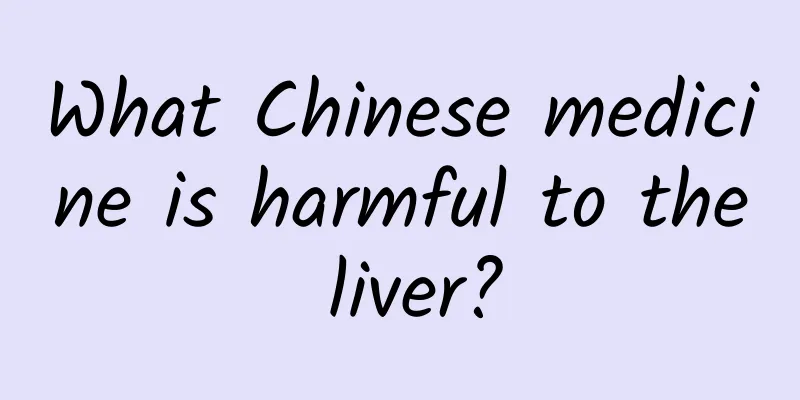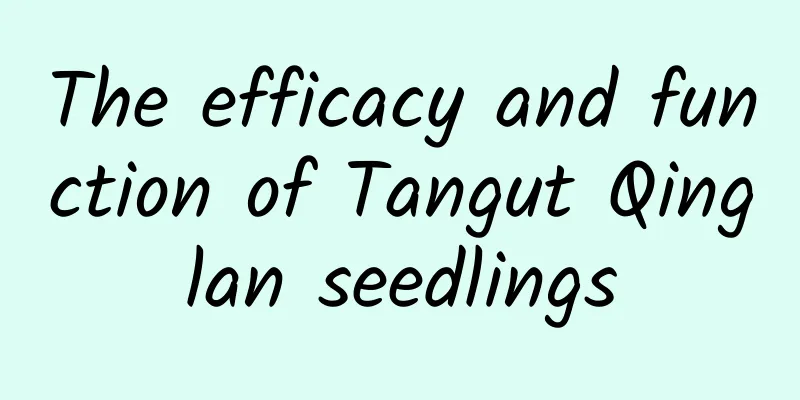What Chinese medicine is harmful to the liver?

|
The side effects of traditional Chinese medicine are smaller than those of western medicine, but there are still cases where a single herb can cause greater damage, especially to the liver. Toosendan fruit, Galla chinensis, Xanthium sibiricum fruit, etc. are all traditional Chinese medicines that can cause more harm to the internal organs, so friends must control their dosage when using them, and it is best to take them with the advice of a doctor. The main function of Keyin Pills and Fufang Qingdai Pills is to treat psoriasis. These Chinese patent medicines contain ingredients such as Smilax glabra and Indigo naturalis that are toxic to the liver. Therapeutic doses can cause symptoms of drug-induced liver damage such as skin itching, yellow urine, yellow skin and sclera, and increased transaminase. Other traditional Chinese medicines that can cause this type of liver damage include puerarin and compound salvia miltiorrhiza. This medicine, Toosendan, has the effects of soothing the liver, regulating qi and relieving pain. Modern pharmacological research shows that the azadirachtin in Toosendan fruit and Melia azedarach bark is toxic to the liver. Normal doses can cause drug-induced hepatitis, jaundice, hepatomegaly and elevated transaminase levels. Xanthium sibiricum and Tripterygium wilfordii are commonly used medicines for treating rhinitis, headache and kidney disease. The toxic proteins and glycosides contained in Xanthium sibiricum can cause liver damage and even lead to liver failure. Tripterygium wilfordii or Tripterygium wilfordii glycoside tablets can cause increased reversible transaminase and liver enlargement, and can also cause hepatitis. The combination of anti-epileptic drugs phenytoin sodium and carbamazepine with Xanthium sibiricum and Tripterygium wilfordii may aggravate the damage of the drugs to the liver. Elderly patients should use Xanthium sibiricum and Tripterygium wilfordii with caution. The hydrolyzed tannins contained in Chinese medicines such as gallnut and pomegranate peel have direct toxic effects on the liver. Long-term use can cause fatty liver and even cirrhosis. Agkistrodon acutus is a commonly used drug for the treatment of cardiovascular and cerebrovascular diseases. Generally, patients may experience symptoms such as yellowing of the skin and sclera, abnormal liver function, etc. after taking the medicine for 10 to 14 days. Red lead, lead powder and myrrh are often used to treat epilepsy, psoriasis, mental illness, etc. Because it contains substances such as aluminum oxide, it can cause lead poisoning, which is manifested by abdominal pain, liver enlargement, jaundice and increased transaminase. Dioscorea bulbifera is a commonly used traditional Chinese medicine for the treatment of thyroid diseases, but it contains toxic substances such as dioscin. After two weeks of use, it may cause icteric (or non-icteric) hepatitis, and may also cause ascites or hepatic coma. Castor beans are commonly used laxatives because they contain ricin, which can easily damage the liver and cause toxic hepatitis. Senecio, Glechoma longituba, and Heliotropium have delayed hepatotoxicity due to the pyridoxine alkaloids they contain. Long-term use can lead to hepatic vein occlusion, jaundice, and ascites. |
<<: What are the Chinese medicine formulas for external application of synovitis?
>>: What are the Chinese medicine remedies for Parkinson's disease?
Recommend
The efficacy and function of shark fin
Shark fin is a very nutritious and precious medic...
Liver nourishing grass pictures
Yanggancao is a traditional Chinese medicine that...
The efficacy and function of Vitex quinata leaves
After thousands of years of sedimentation and acc...
There are "mama's boys" and "community bulls", killer whales may not be as simple as you think!
Among the whales and dolphins Killer whales are u...
What is a space power? Wang Xiang, commander-in-chief of the space station system, said
On July 24, the Wentian Experimental Module was s...
The efficacy and function of fermented glutinous rice
Everyone is familiar with fermented glutinous ric...
The efficacy and function of nail fruit
The nail fruit has a long history, and until now,...
You must visit this park in your lifetime! Here you will understand "there is a kind of love called letting go"
In China, There is such a park. Although it was o...
What are the medicinal properties of traditional Chinese medicine?
Traditional Chinese medicine has existed in China...
Black technology in future agriculture: How can green and intelligent fertilizers ensure that crops are well fed without waste?
Imagine that you are a farmer, carrying bags of f...
Wang Hong becomes a hot candidate for the Fields Medal. Why is the Kakeya conjecture so important?
A hundred years ago, Japanese mathematician Soich...
Is it sentimentality or morbid affectation? Why do animals shed tears?
|||| Written by reporter Liao Mailun Edited by Di...
“Ruthenium signature” confirms: Did the great destruction 66 million years ago come from the outer solar system?
For a long time, the sudden disappearance of dino...
Lose weight, reduce carbon emissions, save money! This is a good thing that kills three birds with one stone, you definitely don’t know
Do you lack motivation to lose weight? What if lo...
Qingjin Huatan Decoction Recipe Song
There are many ways to treat diseases. In additio...









